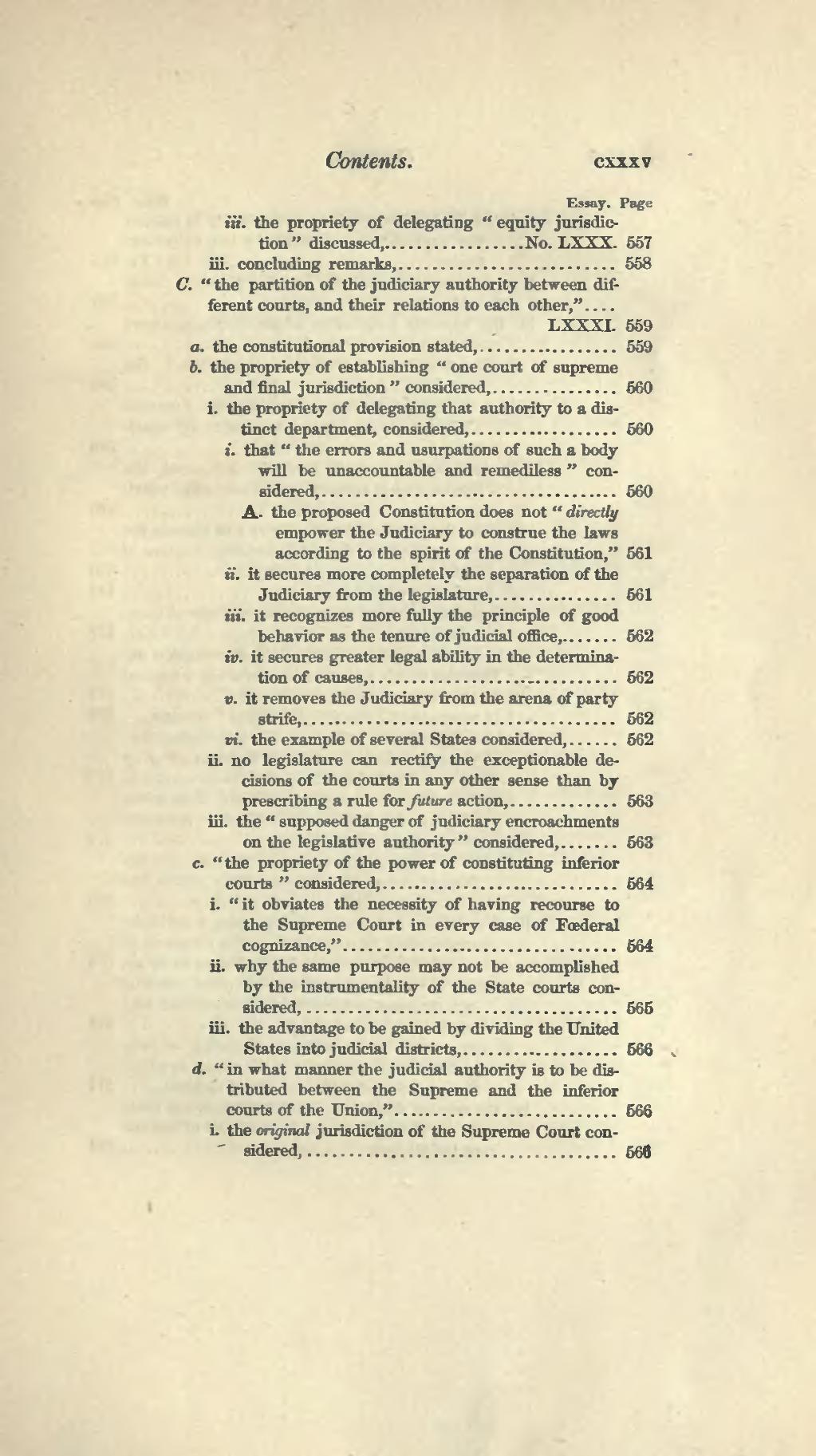This page has been validated.
Contents.
cxxxv
| Essay. | Page | |
| iii. the propriety of delegating "equity jurisdiction" discussed, | No. LXXX. | 557 |
| iii. concluding remarks, | 558 | |
| C. "the partition of the judiciary authority between different courts, and their relations to each other," | LXXXI. | 559 |
| a. the constitutional provision stated, | 559 | |
| b. the propriety of establishing "one court of supreme and final jurisdiction" considered, | 560 | |
| i. the propriety of delegating that authority to a distinct department, considered, | 560 | |
| i. that "the errors and usurpations of such a body will be unaccountable and remediless" considered, | 560 | |
| A. the proposed Constitution does not "directly empower the Judiciary to construe the laws according to the spirit of the Constitution," | 561 | |
| ii. it secures more completely the separation of the Judiciary from the legislature, | 561 | |
| iii. it recognizes more fully the principle of good behavior as the tenure of judicial office, | 562 | |
| iv. it secures greater legal ability in the determination of causes, | 562 | |
| v. it removes the Judiciary from the arena of party strife, | 562 | |
| vi. the example of several States considered, | 562 | |
| ii. no legislature can rectify the exceptionable decisions of the courts in any other sense than by prescribing a rule for future action, | 563 | |
| iii. the "supposed danger of judiciary encroachments on the legislative authority" considered, | 563 | |
| c. "the propriety of the power of constituting inferior courts" considered, | 564 | |
| i. "it obviates the necessity of having recourse to the Supreme Court in every case of Fœderal cognizance," | 564 | |
| ii. why the same purpose may not be accomplished by the instrumentality of the State courts considered, | 565 | |
| iii. the advantage to be gained by dividing the United States into judicial districts, | 566 | |
| d. "in what manner the judicial authority is to be distributed between the Supreme and the inferior courts of the Union," | 566 | |
| i. the original jurisdiction of the Supreme Court considered, | 566 |
